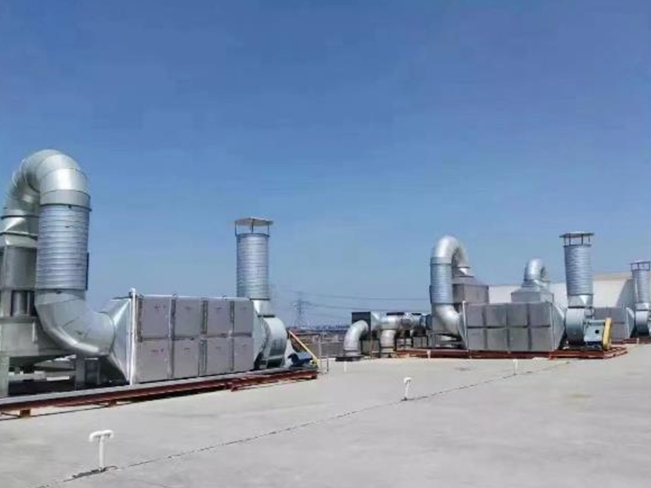Air pollution treatment facilities can generate noise and secondary pollution during operation, impacting the surrounding environment and employee health. With increasingly strict environmental regulations, businesses must adopt new technologies to reduce noise and pollution.
Low-Noise Equipment: Noise primarily originates from blowers, fans, and compressors. Air suspension blowers are an efficient and low-noise option. Their contact-free design minimizes friction noise during operation.
Silencing Equipment: Aeration systems, including aeration heads and gas dispersion devices, can produce airflow noise. Installing silencers and sound-absorbing materials can significantly reduce this noise, improving the acoustic environment in industrial areas.
Strategic Layout: Placing high-noise equipment in soundproof rooms or away from populated areas can effectively minimize its impact on the surrounding environment. Additionally, using glass-fused-to-steel (GFS) tanks to store intermediate products in the air pollution treatment process enhances noise control with their stability and sealing capabilities.
Advanced Filtration Technologies: The air pollution treatment process may release particulates or untreated emissions. High-efficiency filtration equipment can effectively capture these pollutants. While DAF systems (Dissolved Air Flotation) and MBR systems (Membrane Bioreactors) are often used in wastewater treatment, their technologies can also extend to gas-liquid separation in exhaust treatment, helping reduce particulate pollution.
Chemical Control: Using chemicals to neutralize pollutants during exhaust treatment may produce chemical residues or emissions. PH/ORP controllers can precisely monitor and regulate chemical reactions in the process, preventing excessive chemical use and reducing pollution.
Optimized Sludge Treatment Equipment: Sludge generated during exhaust treatment requires proper handling to prevent secondary pollution. Equipment such as screw press dehydrators, plate-and-frame filter presses, and belt-filter sludge dehydrators can effectively separate solids and liquids, reducing moisture and harmful components in sludge, making subsequent treatment more eco-friendly.
Learn more: Equipment sales in Thailand, RO pure water systems, and EDI ultrapure water systems.


